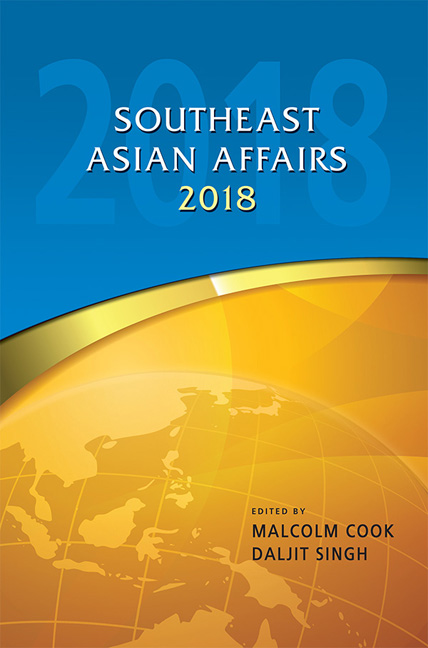Timor-Leste in 2017: A State of Uncertainty
from TIMOR-LESTE
Published online by Cambridge University Press: 08 June 2019
Summary
Timor-Leste enters 2018 facing an uncertain future on a number of political and economic fronts. This review focuses on three issues: first, the progress of the Timor Sea negotiations with Australia in 2017; second, Timor-Leste's bid for ASEAN membership; and finally, the processes and outcomes of the presidential and parliamentary elections. By the year's end, the events of 2017 relating to these key issues have left Timor-Leste's political situation in an indeterminate state.
An agreement between Australia and Timor-Leste on resolving the longrunning dispute over hydrocarbon resources and maritime boundaries in the Timor Sea will be integral to the short- and medium-term economic viability of the Timorese state. While the apparent resolution of the maritime boundaries dispute has been viewed as a moral victory, we currently know little about where the boundaries will be located or the specifics of the special regime that will govern the lucrative but contested Greater Sunrise gas field. How these negotiations will alter Timor-Leste's plans to develop oil industrialization capabilities also remain unknown. On the second major international relations issue — ASEAN membership — Timor-Leste finishes the year once again unsuccessful in its pursuit of joining the organization, as the current member states remain doubtful about the country's economic and diplomatic capacities. This again leaves Timor-Leste's membership prospects in suspension, and, consequently, its identity status as a Southeast Asian state remains ambiguous.
In terms of domestic politics, Timor-Leste held the third set of presidential and parliamentary elections since its independence in 2002. As such, the elections provided some important insights into democratic consolidation, and were widely regarded as well run. The national parliament elections in particular produced surprise outcomes and led to a peaceful change of government, replacing the sixth government of “National Unity” that comprised a cosy coalition between the two major parties, CNRT and FRETILIN. Subsequent to the election, the formation of new coalitions between political parties rendered obsolete those observations that oppositional politics had ended. The description by Dennis Shoesmith in Southeast Asian Affairs 2017 of Timor-Leste as a “consociational” and “controlled” democracy that had ostensibly replaced conflict with consensus has now been supplanted, as a parliamentary majority opposition has emerged that threatens the authority of the new FRETILIN-led minority government. Now, instead of no opposition, there may to be too much, highlighting the fluidity of the domestic political context.
- Type
- Chapter
- Information
- Southeast Asian Affairs 2018 , pp. 391 - 404Publisher: ISEAS–Yusof Ishak InstitutePrint publication year: 2018

